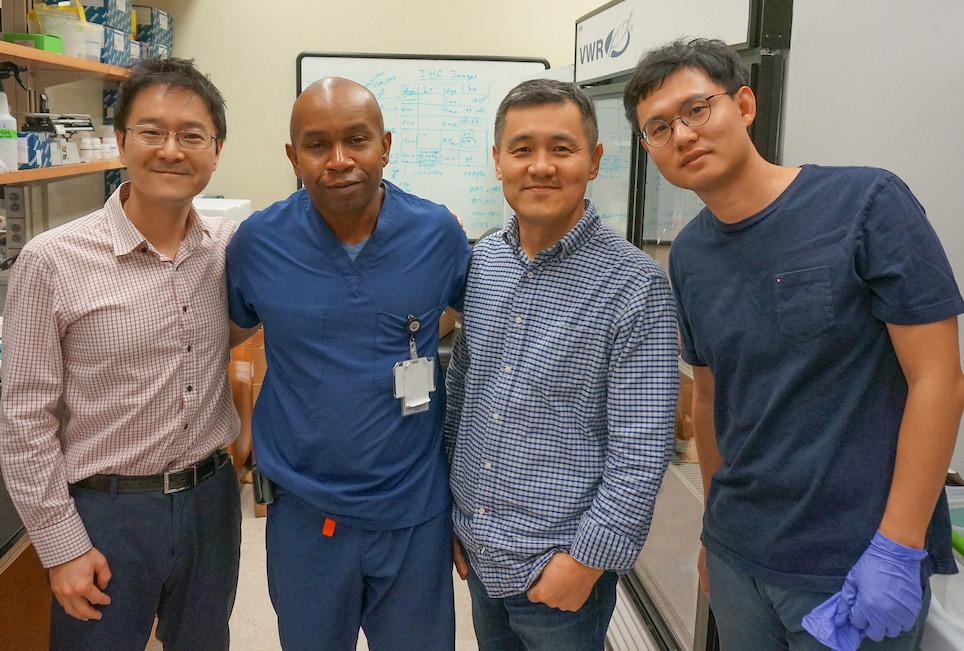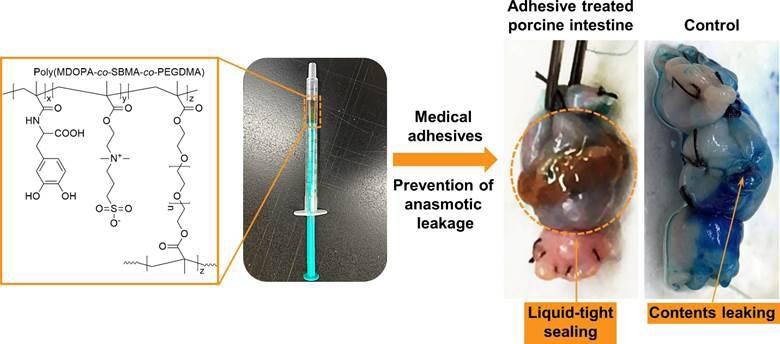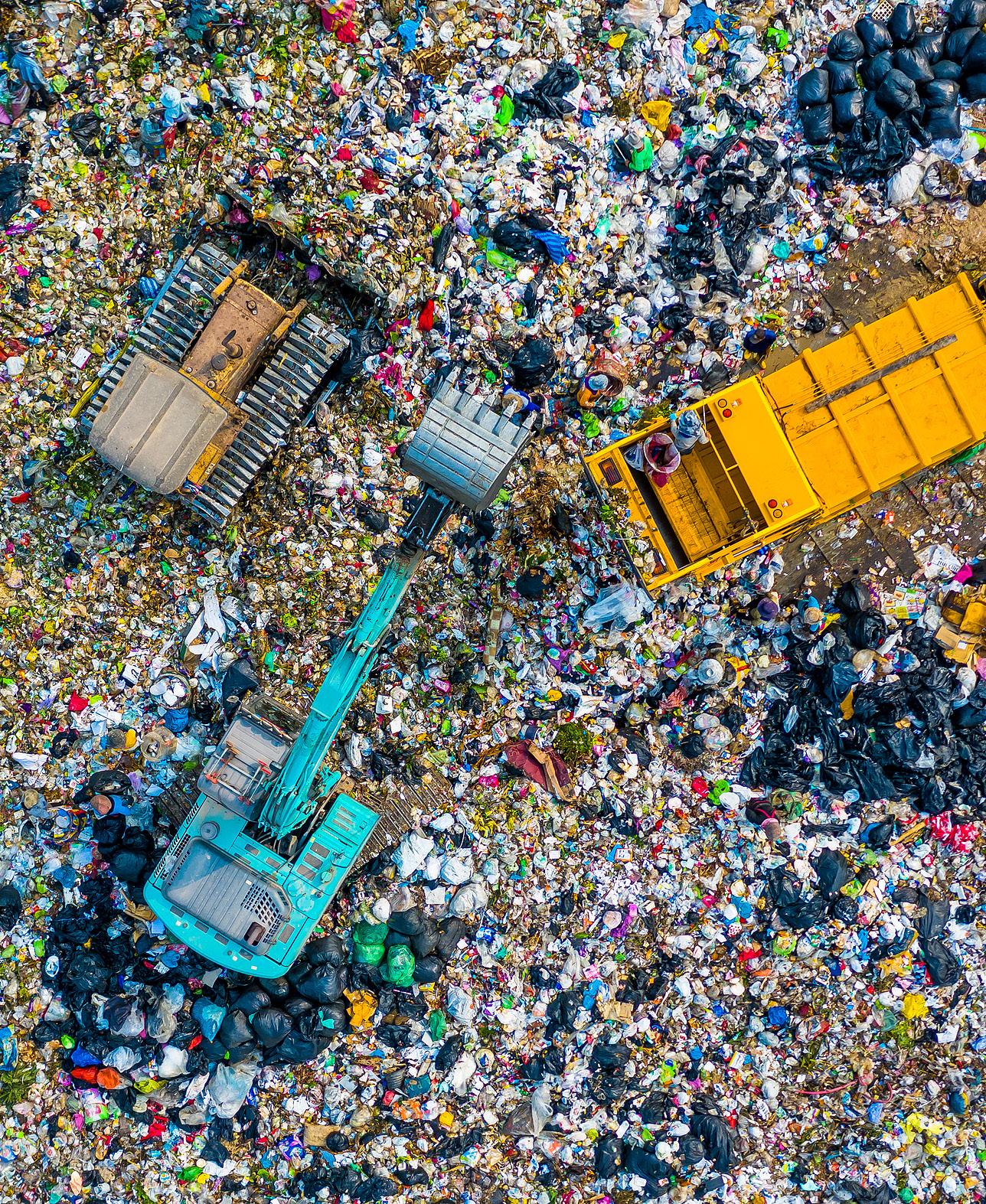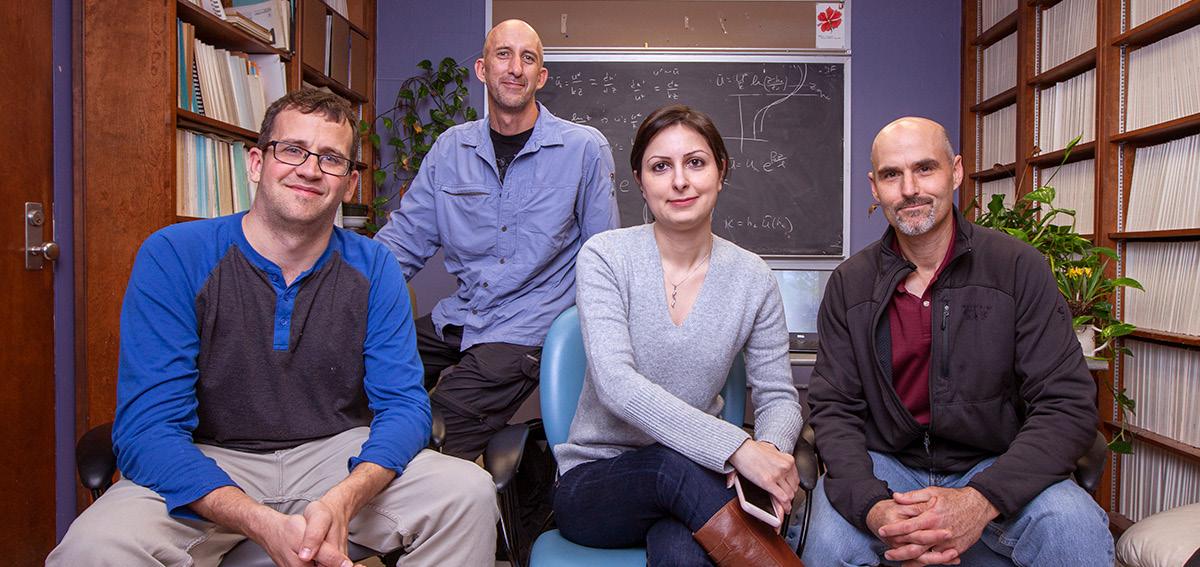
2 minute read
Sealed and delivered
Researchers land grant for new wet tissue bioadhesive that delivers drugs and a reliable seal
Biomedical adhesives are an important new biomaterial, which stably bind two tissue surfaces to replace and enhance surgical suturing. The new adhesives are needed because existing biomedical adhesives have significant limitations like poor wet adhesion and complex application methods. There are also safety concerns regarding some of the materials that are used.
—H. CHUNG, BIOMEDICAL ENGINERING ASSISTANT PROFESSOR
Researchers in engineering and medicine recently proposed biomedical adhesives designed to overcome these problems with bottlebrush polymer architectures that are biodegradable. The multifunctional biomaterial can deliver antibiotics and anticancer drugs to a localized area of the internal organ. The team was recently funded by the National Science Foundation to further test the technology.
“We are hoping this could reduce high mortality rates associated with difficult surgeries such as intestinal anastomosis,” said Choogon Lee, associate professor of the FSU College of Medicine and one of the project researchers.
Anastomosis usually involves a surgical connection between tubular structures such as blood vessels or intestines. When a section of the intestine is removed, the remaining ends usually are sewn or stapled together. Bacterial infections can contribute to anastomotic leakage and delay wound healing.
Ho Yong Chung, an assistant professor of chemical and biomedical engineering, is the principal investigator on the study, which is a collaboration between the FAMU-FSU College of Engineering and the FSU College of Medicine. Chung’s group oversees the development of drug-loadable, fully degradable bio-adhesives for internal organs, while Lee’s group is testing the biomedical effectiveness and toxicity of the bio-adhesives.
In preliminary work, these adhesives have shown drug delivery capabilities and improved biocompatibility and are superior to other adhesives currently in use.
The proposed drug-loaded biomedical adhesive will prevent physical leakage from the site and deliver antibiotics to control the bacteria population near the surgery site. In addition, localized anticancer drug delivery to prevent cancer reoccurrence can be beneficial after cancerous anastomosis surgery.

(L to R): Hoyong Chung, Wade Douglas, Choogon Lee, and Minkyu Kim.
FAMU-FSU Engineering/M Wallheiser
Bottlebrush polymers look somewhat like a bottle brush used to clean a test tube. Compared to conventional linear polymers, bottlebrush polymers have unique super-soft elastomer features that enable efficient adhesion to internal organs in a wet living environment. The super-soft elastomer is stable and flexible and has unique features that have not previously been used in biomedical adhesives.
“We believe that the new proposed drug-loaded biomedical adhesives can be used to treat diseases and cancers that need the delivery of small molecule drugs,” Chung said. “Because the drug can stay in a specific area or internal organ, many side effects can be prevented.”
The NSF award for this project is $500,000 over three years.








